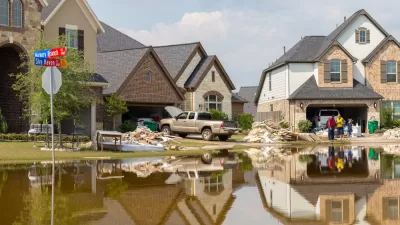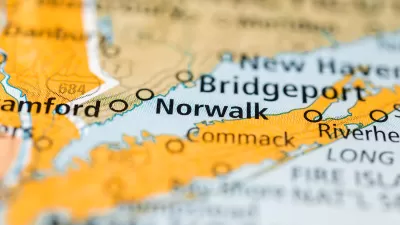The National Flood Insurance Program is unable to keep up with the pace of storms and sea level rise since Hurricane Katrina in 2005 and is now $24 billion in debt. Why then, do the same houses receive repeated payouts?
Beth Daley reports on the “Severe Repetitive Loss properties” that repeatedly receive tax-payer funded insurance payouts when battered by flooding.
“There are 534 properties in New England alone that the Federal Emergency Management Agency considers Severe Repetitive Loss properties — meaning in most cases that the flood insurance program has paid the owners for four significant flood claims, two within one decade. Nationally, according to FEMA, there are about 12,000 such properties.”
Daley starts the article by focusing on the town of Scituate. “Scituate has 112 [Severe Repetitive Loss properties]. Over the years, such properties have accounted for 689 losses. The total in claims: $21.3 million.”
Daley focuses on some of the specific properties in question, as well as the implications of recent congressional actions to adjust flood insurance premiums.
FULL STORY: Houses wrecked repeatedly by sea rebuilt with taxes

Maui's Vacation Rental Debate Turns Ugly
Verbal attacks, misinformation campaigns and fistfights plague a high-stakes debate to convert thousands of vacation rentals into long-term housing.

Planetizen Federal Action Tracker
A weekly monitor of how Trump’s orders and actions are impacting planners and planning in America.

In Urban Planning, AI Prompting Could be the New Design Thinking
Creativity has long been key to great urban design. What if we see AI as our new creative partner?

King County Supportive Housing Program Offers Hope for Unhoused Residents
The county is taking a ‘Housing First’ approach that prioritizes getting people into housing, then offering wraparound supportive services.

Researchers Use AI to Get Clearer Picture of US Housing
Analysts are using artificial intelligence to supercharge their research by allowing them to comb through data faster. Though these AI tools can be error prone, they save time and housing researchers are optimistic about the future.

Making Shared Micromobility More Inclusive
Cities and shared mobility system operators can do more to include people with disabilities in planning and operations, per a new report.
Urban Design for Planners 1: Software Tools
This six-course series explores essential urban design concepts using open source software and equips planners with the tools they need to participate fully in the urban design process.
Planning for Universal Design
Learn the tools for implementing Universal Design in planning regulations.
planning NEXT
Appalachian Highlands Housing Partners
Mpact (founded as Rail~Volution)
City of Camden Redevelopment Agency
City of Astoria
City of Portland
City of Laramie




























